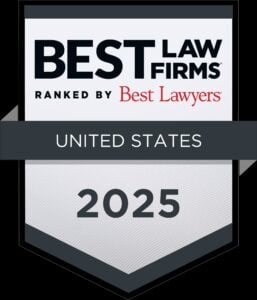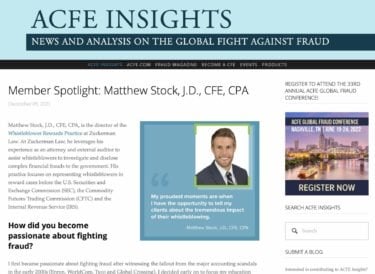Whistleblower Rewards for Reporting Wrongdoing
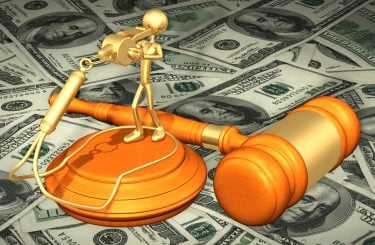 Whistleblower rewards are a monetary incentive provided by the government to reward a whistleblower’s disclosure of original information that leads to successful enforcement action. Some whistleblower reward laws permit whistleblowers to report fraud anonymously and most whistleblower reward laws protect whistleblowers against retaliation.
Whistleblower rewards are a monetary incentive provided by the government to reward a whistleblower’s disclosure of original information that leads to successful enforcement action. Some whistleblower reward laws permit whistleblowers to report fraud anonymously and most whistleblower reward laws protect whistleblowers against retaliation.
Under most whistleblower reward laws, a whistleblower can receive an award of up to 30% of the monetary sanctions collected in a successful enforcement action. The largest SEC whistleblower award to date is $279 million.
Whistleblower rewards have been extraordinarily effective in strengthening the enforcement of anti-fraud laws and halting fraud schemes. Our clients’ SEC whistleblower tips have helped the SEC halt more than $1 billion in fraudulent investment schemes.
Zuckerman Law firm’s SEC whistleblower lawyers are privileged to partner with our courageous clients to help them obtain multimillion-dollar awards while helping the government hold fraudsters accountable and return funds to defrauded investors.






Experienced and effective whistleblower reward lawyers, in our firm, can help you determine if you qualify for a whistleblower reward and work with you to maximize your recovery under various whistleblower reward programs, including the following:
- SEC Whistleblower Reward Program: whistleblower rewards for reporting violations of the federal securities laws.
- The largest SEC whistleblower reward to date is $279 million.
- CFTC Whistleblower Reward Program: whistleblower rewards for reporting violations of the Commodity Exchange Act.
- The largest CFTC whistleblower reward to date is $200 million.
- IRS Whistleblower Reward Program: whistleblower rewards for reporting tax fraud or underpayments.
- The largest IRS whistleblower reward to date is $104 million.
- False Claims Act / Qui Tam Lawsuits: whistleblower rewards for reporting fraud on the government.
- The largest qui tam whistleblower reward to date is $266 million.
- Anti-Money Laundering Whistleblower Reward Program: whistleblower rewards for reporting money laundering and sanctions violations.
Each whistleblower program has unique rules and procedures. Whistleblowers should consult with an experienced whistleblower rewards law firm to determine if their claim qualifies for a reward under one of these programs.
Contact us today to find out the strategies that we have successfully employed to secure SEC whistleblower awards for our whistleblower clients.
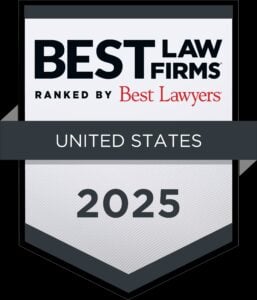
Whistleblower Rewards Lawyers
For more information about whistleblower rewards and whistleblower protections, contact leading whistleblower rewards law firm Zuckerman Law at 202-930-5901 or 202-262-8959 or email us at [email protected].
Our effective advocacy for the whistleblowers that we are privileged to represent has resulted in substantial awards for our clients. Our clients’ SEC whistleblower tips have helped the SEC halt more than $1 billion in fraudulent investment schemes.
 We have obtained awards for nine SEC whistleblowers. The orders announcing those awards note our clients’ significant assistance to SEC staff that led to SEC enforcement actions and enabled the SEC to conserve resources.
We have obtained awards for nine SEC whistleblowers. The orders announcing those awards note our clients’ significant assistance to SEC staff that led to SEC enforcement actions and enabled the SEC to conserve resources.
Our success representing whistleblowers at the SEC has enabled us to focus on a limited number of claims that are likely to result in enforcement actions and result in the payment of awards. In 2020, we filed 9 TCRs, all of which resulted in the SEC investigating the claims and 4 of which resulted in enforcement actions within one year of filing the claims.
Before retaining an SEC whistleblower attorney, ask about their track record representing whistleblowers. Some aspects of our experience that set us apart and enabled us to obtain awards for our clients include:
- Matt Stock is a Certified Public Accountant, Certified Fraud Examiner and former KPMG external auditor. As an auditor, Mr. Stock developed an expertise in financial statement analysis and internal controls testing and fraud recognition. He uses his auditing experience to help SEC, CFTC, DOJ, FinCEN whistleblowers investigate and disclose complex financial frauds to the government and develop a roadmap for enforcement attorneys to take an enforcement action. Matt has been interviewed on CNBC, quoted extensively about whistleblower rewards in the media, and is the lead author of SEC Whistleblower Program: Tips from SEC Whistleblower Attorneys to Maximize an SEC Whistleblower Award. Recently the Association of Certified Fraud Examiners published a profile of SEC whistleblower lawyer Matt Stock’s success working with whistleblowers to fight fraud:
- Dallas Hammer has extensive experience representing whistleblowers in retaliation and rewards claims and has helped whistleblowers secure award for reporting fraud on the government, foreign bribery, and accounting fraud. He was selected by his peers to be included in The Best Lawyers in America® in the category of employment law in 2021 and 2022.
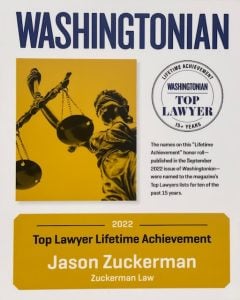 Described by the National Law Journal as a “leading whistleblower attorney,” founding Principal Jason Zuckerman has established precedent under a wide range of whistleblower protection laws and obtained substantial compensation for his clients and recoveries for the government in whistleblower rewards and whistleblower retaliation cases. He served on the Department of Labor’s Whistleblower Protection Advisory Committee, which makes recommendations to the Secretary of Labor to improve OSHA’s administration of federal whistleblower protection laws. Zuckerman also served as Senior Legal Advisor to the Special Counsel at the U.S. Office of Special Counsel, the federal agency charged with protecting whistleblowers in the federal government. At OSC, he oversaw investigations of whistleblower claims and obtained corrective action or relief for whistleblowers.
Described by the National Law Journal as a “leading whistleblower attorney,” founding Principal Jason Zuckerman has established precedent under a wide range of whistleblower protection laws and obtained substantial compensation for his clients and recoveries for the government in whistleblower rewards and whistleblower retaliation cases. He served on the Department of Labor’s Whistleblower Protection Advisory Committee, which makes recommendations to the Secretary of Labor to improve OSHA’s administration of federal whistleblower protection laws. Zuckerman also served as Senior Legal Advisor to the Special Counsel at the U.S. Office of Special Counsel, the federal agency charged with protecting whistleblowers in the federal government. At OSC, he oversaw investigations of whistleblower claims and obtained corrective action or relief for whistleblowers.- Zuckerman was recognized by Washingtonian magazine as a “Top Whistleblower Lawyer” (2020, 2018, 2017, 2015, 2009, and 2007), selected by his peers to be included in The Best Lawyers in America® in the category of employment law (2011-2022) and in SuperLawyers in the category of labor and employment law (2012 and 2015-2022), is rated 10 out of 10 by Avvo, based largely on client reviews, and is rated AV Preeminent® by Martindale-Hubbell based on peer reviews.
Impact of a Whistleblower’s Job Duties on Whistleblower Reward Eligibility
The position or job duties that a whistleblower holds when they report fraud or some other unlawful conduct can have a significant impact on their eligibility for a whistleblower award. It is critical to assess this issue early on because it can make the difference between qualifying for an award or being deemed ineligible for an award. For example, a compliance officer who immediately reports a securities law violation to the Securities and Exchange Commission (SEC) will not qualify for an award, but if they report the violation internally and then wait 120 days to report it to the SEC, they could qualify for an award. And in some jurisdictions, the position or job duties of the whistleblower can trigger a heightened notice requirement.
By assessing early on the impact of a whistleblower’s position or job duties on their eligibility for a potential award and for whistleblower protection, counsel can enable the whistleblower to develop an effective strategy to maximize their recovery and enhance their ability to combat retaliation.
Dodd-Frank Act SEC Whistleblower Reward Program
Under the Dodd-Frank Act there are restrictions on eligibility for a whistleblower reward based on job duties, some of which are categorical, and others which are subject to their own exceptions. The statute categorically bars the SEC from paying an award to any whistleblower who acquired the information that they submitted to the SEC through their work as a member, officer, or employee of an appropriate regulatory agency (SEC and banking regulators), the Department of Justice, a self-regulatory organization, the Public Company Accounting Oversight Board, or a law enforcement organization. 15 U.S.C. § 78u-6(c)(2).
In addition, the regulations provide that a whistleblower’s information will not be deemed “independent knowledge” (information that is not derived from publicly available sources) where the whistleblower learned the information in their professional capacity because of the position that they occupy—e.g., an officer, director, trustee, or partner of an entity; an employee with compliance or internal audit responsibilities; and employees or associates of firms that are retained to investigate possible securities law violations, or independent public accountants that are retained to conduct engagements required by the securities laws. 17 C.F.R. § 240.21F-4(b)(4)(iii). However, this limitation on gatekeeper and watchdog whistleblowing is itself subject to important exceptions. Whistleblowers who fall within these categories can report the information that they learned in performing their job duties and still qualify for an award if:
- they reasonably believe the disclosure is necessary to prevent conduct likely to cause “substantial injury” to the financial interest or property of the entity or investors;
- they reasonably believe the entity is engaging in “conduct that will impede an investigation of the misconduct”; or
- at least 120 days have passed either since they disclosed the information internally (e.g., to their supervisor), or since they obtained the information under circumstances indicating that management or governance personnel at the entity were already aware of the information.
17 C.F.R. § 240.21F-4(b)(4)(v). These exceptions incentivize individuals who occupy sensitive roles that can enable them to identify and stop possible violations of the securities law to fulfill their job duties, while recognizing scenarios “where the benefit of paying an award—in terms of reducing the harm to the entity and investors, and in preserving [the SEC’s] enforcement capacity” warrants rewarding a whistleblower. Implementation of the Whistleblower Provisions of Section 21F of the Securities Exchange Act of 1934, Release No. 34-64545 (May 25, 2011) The Commodity Futures Trading Commission’s whistleblower rules have similar eligibility limitations and exceptions. See 17 C.F.R. §§ 165.2(g)(4) & 165.6.
Anti-Money Laundering Act Whistleblower Reward Program
In contrast to the Dodd-Frank Act, the whistleblower rewards provision of the Anti-Money Laundering Act (which rewards whistleblowing about Bank Secrecy Act violations and evasion of US sanctions), 31 U.S.C. § 5323, does not impose any eligibility restriction on senior corporate officials, compliance personnel, or auditors in the private sector. Indeed, the definition of the term “whistleblower” specifically includes individuals who report violations “as part of the[ir] job duties.” 31 U.S.C. § 5323(a)(5)(A). But it bars whistleblower awards to government employees who acquire the information they report through their job position (employees of the Department of Justice, Department of Treasury, an appropriate regulatory or banking agency, or a law enforcement agency) while acting in the normal course of their job duties.
IRS Whistleblower Reward Program
The IRS whistleblower program’s restriction on award eligibility is limited to individuals who obtain the information they report through their work for the federal government or for a government contractor, i.e., individuals who obtain the information through their official duties as an employee of the Federal Government (including an employee of Treasury), an individual who is or was required by Federal law to disclose the information or who is or was precluded by Federal law or regulation from disclosing the information, and an individual who obtained or had access to the information based on a contract with the Federal Government. 26 C.F.R. § 301.7623-1(b)(2).
False Claims Act
The FCA bars a qui tam action brought by a former or present member of the armed forces against another member of the armed forces arising out of such person’s service in the armed forces. 31 U.S.C. § 3729(e)(1). Although the FCA does not prohibit federal employees from bringing qui tam actions, U.S. ex rel. Maxwell v. Kerr-McGee Oil & Gas Corp., 540 F.3d 1180 (10th Cir. 2008), a relator employed by the government risks running afoul of the public disclosure bar, i.e., they must show that they are not relying on information previously disclosed to the public (e.g., information available to the public during the course of a government hearing, investigation or audit or through the news media).
Top-Rated SEC Whistleblower Rewards Law Firm
SEC Whistleblower Reward Program
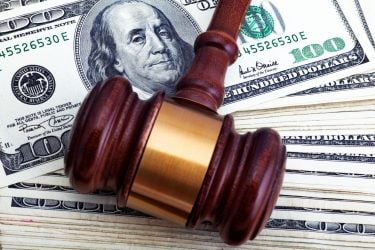 Under the SEC Whistleblower Reward Program, the SEC will issue awards to whistleblowers who provide original information that leads to enforcement actions with total monetary sanctions (penalties, disgorgement, and interest) in excess of $1 million. A whistleblower may receive an award of between 10% to 30% of the monetary sanctions collected.
Under the SEC Whistleblower Reward Program, the SEC will issue awards to whistleblowers who provide original information that leads to enforcement actions with total monetary sanctions (penalties, disgorgement, and interest) in excess of $1 million. A whistleblower may receive an award of between 10% to 30% of the monetary sanctions collected.
Since 2011, the SEC has issued more than $2 billion in awards to whistleblowers. The largest SEC whistleblower awards to date are $279 million, $114 million, and $110 million.
The program allows whistleblowers to submit anonymous tips to the SEC if represented by an attorney. Whistleblowers are also afforded substantial protection against retaliation.
If you are seeking representation in an SEC whistleblower reward case, click here, or call us at 202-930-5901 to schedule a free, confidential consultation.
The most common tips to the SEC Office of the Whistleblower involve:
- Accounting fraud;
- Investment and securities fraud;
- Insider trading;
- Foreign bribery and other FCPA violations;
- EB-5 investment fraud;
- Manipulation of a security’s price or volume;
- Fraudulent securities offerings and Ponzi schemes;
- Hedge fund fraud;
- Unregistered securities offerings;
- Investment adviser fraud;
- Broker-dealer anti-money laundering program violations;
- False or misleading statements about a company or investment;
- Inadequate internal controls;
- Deceptive non-GAAP financials;
- Improper revenue recognition;
- Violations of auditor independence rules;
- Misleading or incomplete cybersecurity disclosures; and
- Blockchain and cryptocurrency fraud.
To learn more about the SEC Whistleblower Reward Program, download Zuckerman Law’s eBook SEC Whistleblower Program: Tips from SEC Whistleblower Attorneys to Maximize an SEC Whistleblower Award and see our Whistleblower Page. Click below to hear SEC whistleblower lawyer Matt Stock’s tips for SEC whistleblowers:
As discussed in our articles, the SEC whistleblower program has become a very effective enforcement tool for the SEC. But less than half of one percent of SEC whistleblowers have received awards, which underscores the importance of having experienced counsel advocate for a whistleblower effectively at the SEC.
- MarketWatch: More than 33,000 tips, $2.5 billion in financial remedies and $500 million in awards to investors — the SEC’s whistleblower program turns 10 years old today
- Going Concern: Here Are 6 Reasons Why the SEC Whistleblower Program Is Successful
- National Law Review: 5 Ways that Experienced SEC Whistleblower Law Firms Can Effectively Advocate for Whistleblowers
- D&O Diary: How the SEC Whistleblower Program Has Changed Corporate Compliance and SEC Enforcement
- Forbes: One Billion Reasons Why The SEC Whistleblower-Reward Program Is Effective
The Process to Qualify for an SEC Whistleblower Reward
SEC Whistleblower Rewards
The table below identifies some of the largest SEC whistleblowers rewards:
| Whistleblower Award | Date | Basis for Whistleblower Award |
|---|---|---|
| $279 million | May 5, 2023 | On May 5, 2023, the SEC announced its largest-ever award, nearly $279 million, to a whistleblower whose information and assistance led to the successful enforcement of SEC and related actions. |
| $114 million | October 22, 2020 | On October 22, 2020, the SEC announced an award of $114 million to a whistleblower whose information and "substantial, ongoing assistance" led to the successful enforcement of SEC and related actions. The award consisted of an approximately $52 million award in connection with the SEC case and an approximately $62 million award arising out of the related actions by another agency. |
| $110 million | September 15, 2021 | On September 15, 2021, the SEC announced its second-largest whistleblower award of $110 million. According to the press release announcing the award, the award consists of an approximately $40 million award in connection with an SEC case and an approximately $70 million award arising out of related actions by another agency. With the award, the SEC Whistleblower Program has now paid more than $1 billion in awards to whistleblowers. |
| $104 million | August 4, 2023 | On August 4, 2023, the SEC announced an award of $104 million to seven individuals whose information and assistance led to a successful SEC enforcement action and related actions brought by another agency. |
| $50 million | April 15, 2021 | On April 15, 2021, the SEC announced a $50 million award to joint whistleblowers. The press release announcing the award stated, "The joint whistleblowers provided exemplary assistance to the SEC staff during the investigation, including meeting with staff numerous times and providing voluminous detailed documents. The information provided by these individuals resulted in the return of tens of millions of dollars to harmed investors." |
| $50 million | June 4, 2020 | On June 4, 2020, the SEC announced its then largest-ever whistleblower award of $50 million to a whistleblower. In the press release announcing the award, the Chief of the SEC’s Office of the Whistleblower, Jane Norberg, stated: "This award is the largest individual whistleblower award announced by the SEC since the inception of the program, and brings the total awarded to whistleblowers by the SEC to over $500 million, including over $100 million in this fiscal year alone. Whistleblowers have proven to be a critical tool in the enforcement arsenal to combat fraud and protect investors." |
| $50 and $33 million | March 19, 2018 | On March 19, 2018, the SEC announced an award of $50 million to two whistleblowers and an award of $33 million to another whistleblower. See the SEC's order determining the whistleblowers' award claims here. |
| $39 and $15 million | September 6, 2018 | On September 6, 2018, the SEC announced its second-largest SEC whistleblower award to date of $39 million. According to the SEC's Press Release, the whistleblowers provided critical information and continued assistance that helped the SEC bring an important enforcement action. |
| $37 and $13 million | March 26, 2019 | On March 26, 2019, the SEC announced its third-highest SEC whistleblower award to date of $37 million. Another whistleblower received a $13 million award in the same action, totaling $50 million in awards to the two whistleblowers. |
| $36 million | September 24, 2021 | The Securities and Exchange Commission announced an award of approximately $36 million to a whistleblower "whose information and assistance significantly contributed to the success of an SEC enforcement action as well as actions by another federal agency." According to the SEC's press release announcing the award, "the whistleblower provided crucial information on an illegal scheme to the SEC's and the other agency's staffs, which included multiple meetings and the identification of key documents and witnesses. Under the SEC's whistleblower program, individuals who provide critical information to other agencies may be eligible for a related action award if they are also eligible for an award in the underlying SEC action." |
| $30 million | September 22, 2014 | A foreign whistleblower came to the SEC with “information about an ongoing fraud that would have been very difficult to detect.” This award underscores that non-US citizens are eligible whistleblowers in the SEC Whistleblower Program. |
| $28 million | May 19, 2021 | On May 19, 2021, the SEC announced an award to a whistleblower totaling more than $28 million in connection with an SEC enforcement action and a related action by another federal agency. The whistleblower’s information caused both the SEC and the other agency to open investigations that resulted in significant enforcement actions. |
| $28 million | November 3, 2020 | The SEC issued a $28 million award to a whistleblower who "provided significant information that aided the SEC in bringing a successful enforcement action." According to the press release announcing the award, the whistleblower "internally reported information that prompted the company to initiate an internal investigation, and saved the staff time and resources by providing testimony and identifying a key witness." |
| $27 million | May 17, 2021 | The SEC awarded almost $27 million to two whistleblowers who provided SEC staff with "new information and assistance during an existing investigation, including meeting with the staff in person on multiple days." According to the SEC's press release, the whistleblowers' "information and cooperation helped the Commission bring the enforcement action, which resulted in the return of millions of dollars to harmed investors." |
| $27 million | April 16, 2020 | The SEC issued a $27 million award to a whistleblower who alerted the agency to misconduct occurring, in part, overseas. After providing the tip to the SEC, the whistleblower provided critical investigative leads that advanced the investigation and saved significant SEC resources. For more information, click here. |
| $23 million | June 2, 2021 | The SEC issued two awards of approximately $13 million and $10 million to two whistleblowers whose information and assistance led to successful SEC and related actions. According to the SEC's press release: "The whistleblowers’ information and assistance led to multiple successful enforcement actions related to a complex and fraudulent scheme involving multiple individuals and tens of millions of dollars in ill-gotten gains.” |
| $22 million | May 10, 2021 | On May 20, 2021, the SEC issued awards totaling $22 million to two whistleblowers whose information and assistance were of "crucial importance to successful SEC enforcement actions brought against a financial services firm." According to the SEC's press release: "The first whistleblower received an award of $18 million, while the second whistleblower received a $4 million award [because] the first whistleblower was the initial source of the investigation while the second whistleblower submitted information much later after the investigation was already underway." |
| $22 million | September 30, 2021 | The SEC issued an award of almost $30 million to two insider whistleblowers whose tips led SEC staff to open an investigation. The first whistleblower, who was the first to alert SEC staff of potential wrongdoing and provided substantial, ongoing assistance, received an award of approximately $22 million. The second whistleblower provided additional valuable information, which significantly contributed to the success of the SEC's enforcement action, and received an award of approximately $7 million. |
| $22 million | August 30, 2016 | A former financial executive at Monsanto exposed weaknesses in the company’s internal controls that failed to account for millions of dollars in rebates. Monsanto agreed to settle the allegations of accounting fraud for $80 million. Importantly, external auditors, internal auditors, accountants and other compliance personnel may be eligible for awards under the SEC Whistleblower Program. Indeed, they are often best positioned to discover wrongdoing. |
| $20 million | November 14, 2016 | According to the SEC's order determining the whistleblower awards, three whistleblowers applied for awards related to the enforcement action. The SEC denied two of the whistleblowers' applications because they did not provide "original information," and issued the full $20 million award to one whistleblower. |
| $18 million | April 28, 2020 | The SEC announced an award of more than $18 million to a whistleblower whose tip prompted an enforcement action that returned millions of dollars to retail investors. |
| $17 million | June 9, 2016 | A company insider “substantially advanced the agency’s investigation and ultimate enforcement action.” This award highlights that whistleblowers may receive an award if they provide original information regarding an open SEC investigation if it significantly contributes to the success of the action. |
| $16 million | November 30, 2017 | Two whistleblowers received awards of more than $8 million each for providing the SEC with critical information that led to a successful enforcement action. This award demonstrates how whistleblowers can receive an increased award percentage for providing ongoing, extensive, and timely assistance to the SEC. As detailed in the SEC's order, the second whistleblower received the same $8 million award as the first whistleblower by providing additional significant information and ongoing assistance to the SEC that "enabled the Enforcement staff to more fully and quickly understand the misconduct and to assess the legal consequences... [which] saved a substantial amount of time and resources in the Investigation." |
| $14 million | September 30, 2013 | The whistleblower exposed a fraudulent offering that targeted foreign investors who sought to gain a legal pathway to citizenship through the EB-5 Immigrant Investor Program. |
| $9.2 million | February 23, 2021 | The whistleblower provided significant information about an ongoing fraud to the SEC that enabled a large amount of money to be returned to investors harmed by the fraud. In addition, the whistleblower information led to successful related actions by the DOJ, one of which was a non-prosecution agreement (NPA) or deferred prosecution agreement (DPA). The award marks the first SEC whistleblower "related action" award based on a NPA or DPA with the DOJ since amendments to the SEC’s whistleblower program rules became effective on Dec. 7, 2020. |
| $7 million | January 23, 2017 | Three whistleblowers split an award of more than $7 million after helping the SEC prosecute an investment scheme. One whistleblower provided information that was the primary reason that the SEC opened an investigation. That whistleblower received a more than $4 million award. Two other whistleblowers jointly provided new information during the SEC’s investigation that significantly contributed to the success of the SEC’s enforcement action. Those two whistleblowers will split more than $3 million. |
| $5.5 million | January 6, 2017 | An anonymous whistleblower orally provided the SEC with critical information about ongoing securities fraud. Generally, the SEC requires that whistleblower provide information “in writing.” However, the SEC waived that requirement in this case due to “highly unusual circumstances” and awarded the whistleblower more than $5.5 million for the information. This award marks the third time that the SEC has deemed it appropriate to waive a procedural requirement. The most recent exception occurred on July 27, 2017, when the SEC issued a $1.7 million whistleblower award to an insider who failed to comply with all of the whistleblower program's rules and had some culpability in the fraud. The former chief of the SEC whistleblower office said that these awards underscore the SEC’s discretionary authority to do what justice requires. |
| $5 million | April 20, 2020 | The SEC issued a $5 million award to a whistleblower who provided significant information that led to a successful enforcement action. According to the SEC, the whistleblower provided critical evidence of wrongdoing, which helped save time and resources in the SEC’s investigation, and the whistleblower suffered a unique hardship as a result of raising concerns internally. |
| $5 million | May 17, 2016 | A former company insider’s detailed tip led the agency to uncover securities violations that would have been nearly impossible for it to detect but for the whistleblower’s information. The SEC's press release noted that employees are often best positioned to witness wrongdoing. |
| $4 million | April 25, 2017 | The SEC issued the $4 million award to an anonymous whistleblower who provided information that led another governmental authority to a successful enforcement action resulting in significant monetary sanctions. This award highlights that SEC whistleblowers may be eligible for awards for "related actions." |
| $4 million | September 30, 2016 | The SEC issued the award to an anonymous whistleblower for “alter[ing] the agency to a fraud.” The lack of publicly available information about the anonymous whistleblower and the enforcement action underscores how serious the SEC is about protecting whistleblower's. Under the program, whistleblower may report anonymously through an SEC whistleblower attorney. |
| $3.8 million | July 14, 2020 | The SEC issued a $3.8 million award to a whistleblower that provided new information during the course of an ongoing investigation into a fraudulent scheme. According to the order announcing the award, the information that the whistleblower provided “helped the Commission halt an ongoing fraud and return millions of dollars to harmed investors.” |
| $3.5 million | May 13, 2016 | The whistleblower “bolstered an ongoing investigation with additional evidence of wrongdoing” which helped the SEC during settlement discussions with the company. This award underscores how whistleblowers may still receive an award even if the SEC already has an open investigation into a matter. |
Visit SEC To view Press Releases.
CFTC Whistleblower Reward Program
Under the CFTC Whistleblower Reward Program, the CFTC will issue awards to whistleblowers who provide original information about violations of the Commodity Exchange Act that leads to enforcement actions with total monetary sanctions in excess of $1 million. A whistleblower may receive an award of between 10% to 30% of the monetary sanctions collected. Recently, the CFTC awarded $200 million to a whistleblower. See our post:
CFTC Shows Whistleblowers the Money: Implications of Record $200 Million Award
The program allows whistleblowers to submit anonymous tips to the CFTC if represented by an attorney. Whistleblowers are also afforded substantial protection against retaliation.
Anti-Money Laundering Whistleblower Rewards Lawyers
Guide to Anti-Money Laundering Act Whistleblower Rewards and ProtectionsOFAC Sanctions Evasion Whistleblower Reward Program
CFTC Whistleblower Rewards
The table below identifies some of the largest CFTC whistleblowers rewards:
| Whistleblower Award | Date | Basis for Whistleblower Award |
|---|---|---|
| $200 million | October 21, 2021 | October 21, 2021, the CFTC "announced an award of nearly $200 million to a whistleblower whose specific, credible, and timely original information significantly contributed to an already open investigation and led to a successful enforcement action, as well as to the success of two related actions, by a U.S. federal regulator and a foreign regulator." For more information about the award, see our article here. |
| $45 million | August 2, 2018 | On August 2, 2018, the CFTC announced a $45 million award to multiple whistleblowers. Reports indicate the award was related to ISDAFIX manipulation enforcement actions. |
| $30 million | July 12, 2018 | On July 12, 2018, the CFTC announced its largest-ever whistleblower award given to an individual. The whistleblower exposed that JP Morgan did not properly disclose conflicts of interests to clients. Find the order here. |
| $10 million | March 28, 2016 | On April 4, 2016, the CFTC announced a $10 million award given to an individual. The whistleblower provided “valuable information” regarding violations of the Commodity Exchange Act. Find the order here. |
| $7 million | September 27, 2019 | On September 27, 2019, the CFTC issued a $7 million award to a whistleblower. CFTC Director of Enforcement James McDonald stated in the Press Release: “Forty percent of our investigations now involve whistleblowers. We expect that number to increase as the CFTC continues to expand its whistleblower program.” Find the order here. |
| $6 million | June 9, 2020 | On June 9, 2020, the CFTC issued a $6 million award to a whistleblower who voluntarily provided original information that led the CFTC to bring a successful enforcement action. According to the Press Release announcing the award, the CFTC opened its investigation upon receiving the whistleblower’s information, which was specific, credible and timely. |
| $2.5 million | June 24, 2019 | On July 24, 2019, the CFTC issued a $2.5 million CFTC whistleblower award to an individual. The award was reduced because of the whistleblower’s delay in reporting. Director McDonald said the delay was “unreasonable” and the whistleblower could have received a larger award had this person not waited. Find the order here. |
| $2 million | July 1, 2019 | On July 1, 2019, the CFTC issued a $2 million CFTC whistleblower award to two whistleblowers. The whistleblowers provided multiple interviews and documents that were “highly informative” and provided the agency “with significant information” that prompted the CFTC to open an investigation. The whistleblowers also reported the violations to another organization that conducted a separate investigation and shared its findings with the CFTC. Find the order here. |
| $2 million | March 4, 2019 | On March 4, 2019, the CFTC announced an award of over $2 million to a whistleblower. The whistleblower conducted an "independent analysis" of market data, which aided greatly in the CFTC’s investigation. The whistleblower was not an insider. The order is here. |
| $1.5 million | May 6, 2019 | On May 6, 2019, the CFTC announced a $1.5 million award to a whistleblower who tried to report it internally first. The CFTC granted the reward to the whistleblower for both a CFTC action and a related action brought by another federal regulator. Find the order here. |
| $290,000 | September 29, 2015 | On September 29, 2015, the CFTC announced an award of $290,000 to a whistleblower. Two applicants applied for the award, but the CFTC only awarded one of the whistleblowers because the “the information provided by the second applicant did not lead to a successful enforcement . . . action.” |
| $240,000 | May 20, 2014 | On May 20, 2014, the CFTC announced its first-ever whistleblower award of $240,000. The then-acting director of the CFTC reported that the whistleblower provided “specific, timely and credible information” that led to a successful investigation. |
IRS Whistleblower Reward Program
Under the IRS Whistleblower Reward Program, the IRS provides whistleblower rewards to individuals of 15% to 30% of proceeds collected from tax fraud or tax underpayments if:
- the whistleblower provides a tip that the IRS decides to take action on (a whistleblower cannot force the IRS to act on a tip);
- the amount in dispute (the tax underpayment, including interest and penalties) exceeds $2 million (if the taxpayer is an individual, his or her gross income must exceed $200,000 for at least one of the tax years in question); and
- the IRS collects tax underpayments resulting from the action (including any related actions).
The largest IRS whistleblower reward to date is $104 million, which was issued to Bradley Birkenfeld after he blew the whistle on UBS for helping wealthy Americans hide their assets and evade taxes.
False Claims Act / Qui Tam Whistleblower Law
The False Claims Act contains a qui tam whistleblower rewards provision allowing whistleblowers, or qui tam “relators,” to bring suits on behalf of the United States against wrongdoers who are defrauding the government. Whistleblowers are eligible to receive 15% to 30% of monetary recoveries. Whistleblowers are also afforded substantial protection against retaliation under the Act.
Qui tam actions brought by whistleblowers have enabled the Department of Justice has to recover nearly $70 billion in stolen government funds, and whistleblowers initiate nearly 80 percent of False Claims Act recoveries. To learn about False Claims Act whistleblower protection, see our FCA whistleblower retaliation FAQ.
Anti-Retaliation Laws Protecting Whistleblowers
Whistleblowers disclosing fraud to the government or to their employers are protected against retaliation under federal and state laws, including the following:
- Sarbanes-Oxley Act (protecting whistleblower disclosures about violations of SEC rules and regulations; violations of federal laws related to fraud against shareholders; or mail, wire, bank, or securities fraud). Download our free ebook, Sarbanes-Oxley Whistleblower Protection: Robust Protection for Corporate Whistleblowers.
- Taxpayer First Act (protecting whistleblowing about tax fraud or tax underpayment)
- Dodd-Frank Act (protecting whistleblowing to the SEC and CFTC)
- False Claims Act and NDAA (protecting whistleblowers working for federal contractors)
- Consumer Financial Protection Act (protecting disclosures concerning consumer financial protection)
Click here to learn more about anti-retaliation protections for SEC whistleblowers under the Dodd-Frank Act and Sarbanes-Oxley Act. If you have suffered retaliation for whistleblowing, call our experienced whistleblower protection lawyers today at 202-262-8959.
Top-Rated Whistleblower Rewards Lawyers
We have assembled a team of leading whistleblower lawyers to provide top-notch representation to SEC whistleblowers. Recently Washingtonian magazine named two of our attorneys top whistleblower lawyers. U.S. News and Best Lawyers® have named Zuckerman Law a Tier 1 firm in Litigation – Labor and Employment in the Washington DC metropolitan area:
- Matt Stock is a Certified Public Accountant, Certified Fraud Examiner and former KPMG external auditor. As an auditor, Mr. Stock developed an expertise in financial statement analysis, internal controls testing and fraud recognition, and he uses his auditing experience to help whistleblowers investigate and disclose complex financial frauds to the government and obtain damages for retaliation.
- Jason Zuckerman was recognized by Washingtonian magazine as a “Top Whistleblower Lawyer” in 2020, 2018, 2017, 2015, 2009, and 2007 selected by his peers to be included in The Best Lawyers in America® in the category of employment law (2011-2021), and selected by his peers to be listed in SuperLawyers (2012 and 2015-2021) in the category of labor and employment law. is rated 10 out of 10 by Avvo, based largely on client reviews, and rated AV Preeminent® by Martindale-Hubbell based on peer reviews.
- Zuckerman served in a senior position at the Office of Special Counsel, where he oversaw investigations of whistleblower retaliation claims and whistleblower disclosures and enforced the Whistleblower Protection Act. He also served on the Department of Labor’s Whistleblower Protection Advisory Committee, which makes recommendations to the Secretary of Labor to improve OSHA’s administration of federal whistleblower protections.
- The firm has published extensively on whistleblower rights and protections, and regularly speaks nationwide at seminars and continuing legal education conferences. We blog about new developments in whistleblower law at the Whistleblower Protection Blog.
Whistleblower Bounties and Rewards
whistleblower_lawyers_012017_infographic